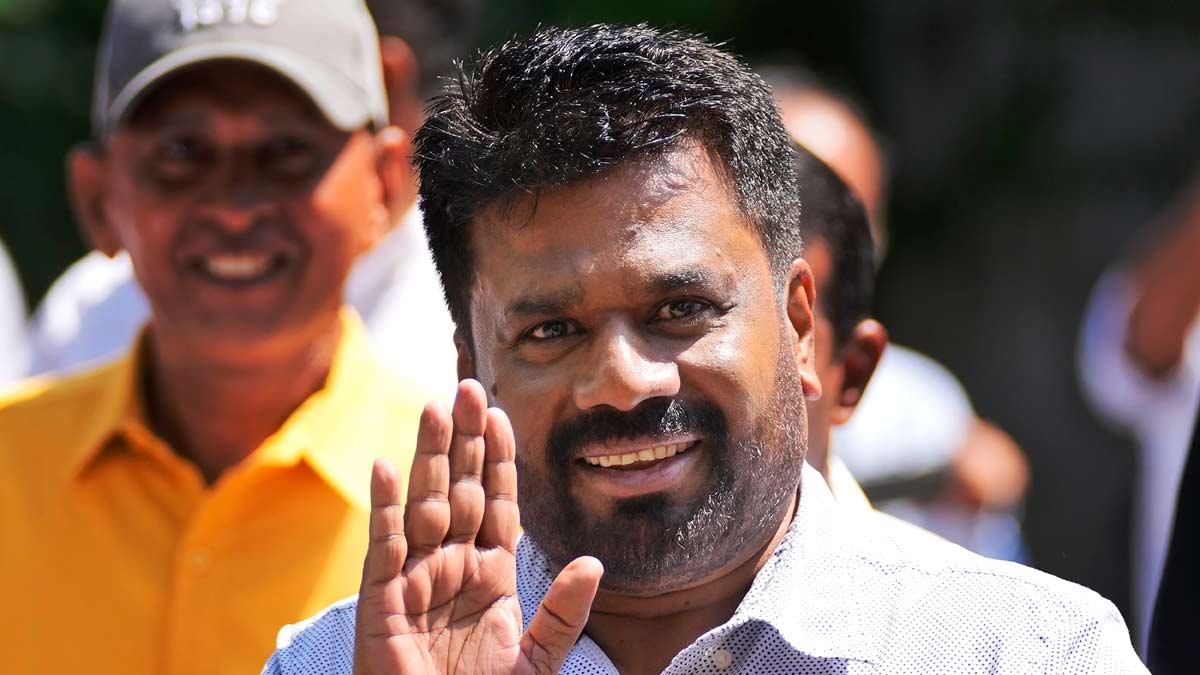Counting of votes for the Sri Lankan presidential elections is still underway, and the latest trends show that National People's Power (NPP) leader Anura Kumara Dissanayake has a clear edge over his opponents.
According to results declared in postal voting of seven of the 22 electoral districts, the NPP leader has gained 56 per cent of the votes, with his two rivals trailing him by grabbing 19 per cent each.
If the trend continues, Dissanayake is likely to win the presidency by 50 per cent plus votes and become the island nation’s first ever Marxist head of state.
Sri Lanka witnessed a three-cornered contest this time with opposition leader Sajith Premadasa and incumbent President Ranil Wickremesinghe also in the fray.
The polling took place on Saturday from 7 am to 4 pm local time at over 13,400 polling stations in 22 electoral districts. This was the first election in the country after the people uprising in 2022.
Our correspondent Lakshmi Subramanian reports that the country’s economic crisis stood out as the major issue in this elections. Sri Lanka’s previous presidential polls had witnessed ethnic issues and the Sinhala majoritarian identities taking centre stage during the campaigns.
The popular uprising in 2022, also known as Aragalaya, had led to the ouster of the Rajapakasas and a major shift in the political landscape of the country.
Wickremesinghe is seeking re-election for a five-year term as an independent candidate, riding on the success of his efforts to pull the country out of the economic crisis while Dissanayake is confident of winning the polls as he has been maintaining that the NPP would bring in total governance and social transformation after its victory.
Anura was part of Chandrika Kumaratunga’s Sri Lanka Freedom Party government in the early 2000s as agriculture minister. He contested the presidential election against Gotabaya Rajapaksa and Sajith Premadasa, but finished a distant third with just 3 per cent of the votes.
But in the last five years, his prospects have improved impressively due to an effective grassroots campaign.


